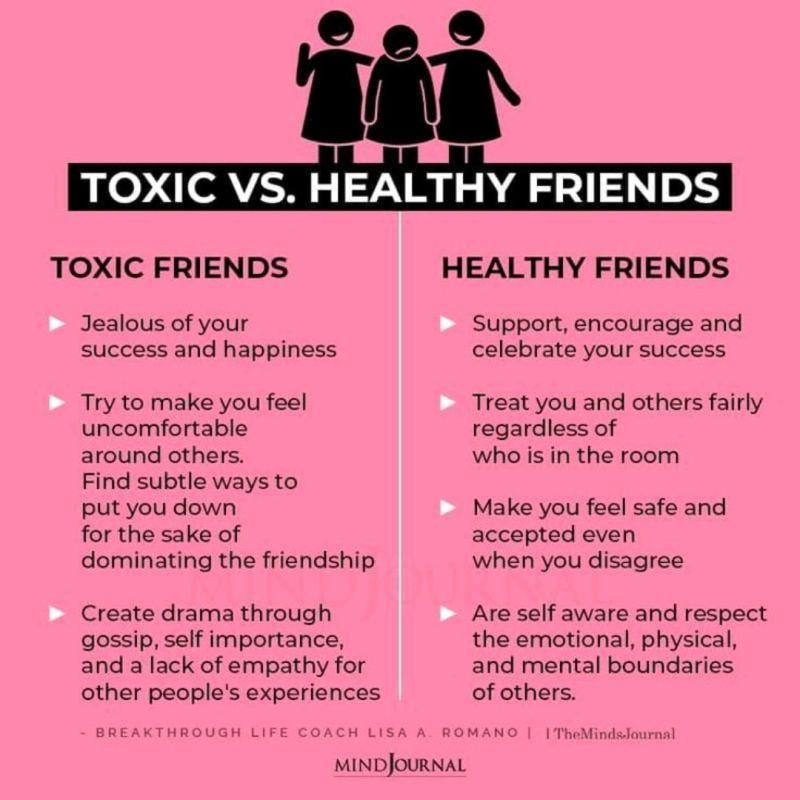Friendships are an integral part of our lives, providing support, joy, and companionship. However, not all friendships are beneficial. Sometimes, they become toxic, draining, or simply not aligned with your personal growth. Performing a friendship audit can help you assess which relationships are worth nurturing and which ones need reevaluation.
This process doesn’t mean you’re cutting ties left and right, but rather focusing on quality and mutual respect. It’s about ensuring that the people around you contribute positively to your life and vice versa. Here are six tell-tale signs that it’s time to take a closer look at your friendships.
1. Constant Negativity

Ever notice how you feel drained after spending time with a particular friend? If their presence brings constant complaints, negativity, or criticism, it’s time to reconsider the dynamics. A negative atmosphere can weigh heavily on your emotional wellbeing. Imagine sitting in a cozy café, but the conversation is clouded by pessimism. This imbalance can hinder personal growth, leaving you emotionally exhausted. Consider how their energy affects you. Is it uplifting or dragging you down? Friendships should be a source of positivity and encouragement, not an endless cycle of negativity. Assess if this negativity is a pattern or an occasional venting session.
2. Lack of Support

When was the last time a friend genuinely celebrated your success? Support is a cornerstone of any meaningful relationship. Imagine achieving a milestone, but your friends dismiss it or, worse, ignore it altogether. This lack of support can be disheartening. Friends should be your cheerleaders, not silent spectators. It’s essential to evaluate if your friends uplift you during your triumphs or if they are only present during your struggles. Support should be consistent and heartfelt. If you find yourself questioning their support, it might be time to address the imbalance. Genuine friends celebrate with you, through thick and thin.
3. One-Sided Efforts

Do you often feel like you’re putting in all the effort to maintain the friendship? This one-sided dynamic can be exhausting. Picture planning a get-together, and you’re the only one initiating contact or making plans. It can feel like you’re carrying the weight of the friendship alone. Relationships require mutual effort to thrive. If you notice your efforts are not reciprocated, it might indicate an imbalance. A healthy friendship thrives on equal participation and interest from both sides. Reflect on the dynamics and consider whether this pattern is worth continuing. Mutuality is the key to a lasting friendship.
4. Feeling Drained

Do certain friends leave you feeling more drained than uplifted? If every interaction leaves you emotionally tired, it’s a red flag. Envision attending a vibrant gathering, but leaving with a heavy heart. Feeling drained signifies that the relationship might be taking more from you than it’s giving. Friendships should rejuvenate, not deplete, your energy. Assess how you feel before and after interactions. Are you excited to meet them, or do you feel obligated? A friendship audit helps identify these draining relationships, allowing space for more fulfilling connections. Recognize the signs and prioritize your emotional health.
5. Incompatible Values

Have you noticed a growing divide in your values with certain friends? Incompatible values can lead to silent tensions. Imagine discussing a topic you’re passionate about, but your friends dismiss it. This discord can sow seeds of resentment. While differences are healthy, core value clashes can be challenging. Reflect on whether these differences enrich your friendship or cause friction. It’s crucial to surround yourself with those who respect and understand your perspectives. If the gap feels too wide to bridge, it might be time to rethink the relationship. Values alignment is essential for harmony.
6. Lack of Trust

Is trust becoming an issue in your friendship? Without trust, relationships falter. Visualize sharing a personal secret, only to hear it from someone else later. This betrayal of confidence can be damaging. Trust is foundational, and its absence can erode the relationship’s integrity. Consider whether you can rely on your friend with your vulnerabilities. Do you feel safe sharing your thoughts? If trust is waning, it might be time to address the root cause or reconsider the friendship’s viability. A strong friendship is built on unwavering trust and mutual respect. Trust issues need resolution for the friendship to thrive.

Well, hello there!
My name is Jennifer. Besides being an orthodontist, I am a mother to 3 playful boys. In this motherhood journey, I can say I will never know everything. That’s why I always strive to read a lot, and that’s why I started writing about all the smithereens I came across so that you can have everything in one place! Enjoy and stay positive; you’ve got this!

